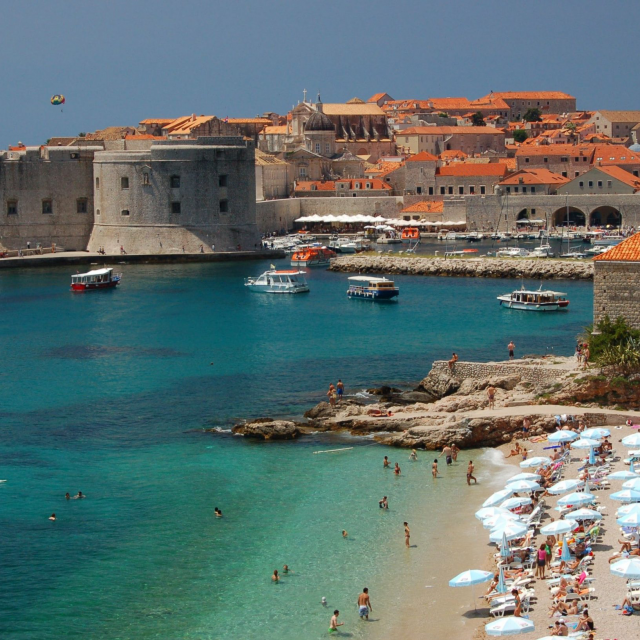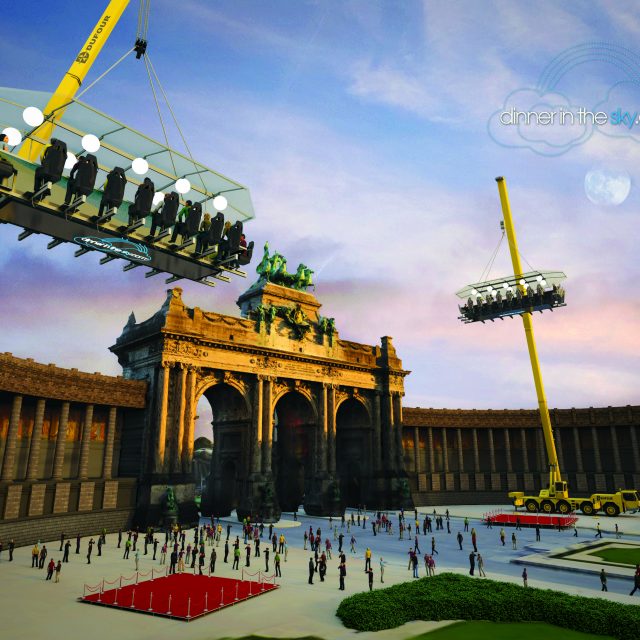Photo by roya ann miller on Unsplash
The European Parliament is 45 this year. In 1979 the first direct election of MEPs took place. In June 2024 more than 400 million European citizens will elect 705 MEPs. Propagandists for the EU cite the elections every five years as proof of the existence of a European demos – a sense that all these votes cast is part of the slow disappearance of the nation state within Europe and the slow emergence of a political entity called the EU, writes Denis MacShane.
If so the birth is taking a very long time. For most national voters the decisions that affect their daily lives – how high or low taxes are, how much social goods like health care, old age provision, schools, university student fees are on offer, or the laws declaring what is a crime or abolish a law that once, for example, made being homosexual or having an abortion a crime – are decided by national lawmakers.
The EU has a foreign ministry staffed by international policy experts but the key decisions that are associated with foreign policy like making war, intervening in Bosnia or Kosovo, opposing Putin’s invasion of Ukraine, or imposing sanctions are made by national governments.
It is 25 years since EU leaders marshalled by Tony Blair agreed on a full-scale military assault on Serb soldiers carrying out punitive massacres and expulsions of Kosovars for asserting their right to be an independent democratic European state. Today the EU has little influence in the West Balkans as individual EU member states, for reasons of nationalist internal politics, refuse to enforce let alone agree on a common EU Balkans policy.
European leaders like to compare themselves in wealth, economic clout and global status with the United States.
But with 27 different economic, energy, taxation, subsidy, energy, immigration, environment and defence policies it is difficult for the European voter to cast his or her vote to elect and MEP in a way that will directly change his or her own life in the same direct way that a national vote can result in a new law, a new tax, or new rights that are immediately felt.
When the first direct elections to a European Parliament were held in 1979 62% of European citizens went to cast their votes. At the last election in 2019 just half of voters could be bothered to vote and the participation rate has been much lower.
Today academics and European Parliament observers believe that there will be a surge of right-wing national identity xenophobic anti-immigration voters. In fact, anti-European, xenophobic political parties have often done well in European Parliament elections.
It is an easy protest vote election in which the voters the EU Davos elites ignore – the poor, the left-behinds, historic agricultural or industrial regions who feel penalised by net-zero climate change policies or open trade in much cheaper food products from oversesas – can have their shout at the elites who then ignore them for another five years.
Jean-Marie Le Pen’s Front national came top in the European Parliament elections in 2014. It was a protest against François Hollande’s socialist presidency which was being undermined by left-wing socialists in France who simply opened the door to the Davos liberal elite technocrat president, Emanuel Macron.
In the 2019, European Parliament election Le Pen’s daughter Marine won 18 MEP seats, with the Greens on second place on 10 seats and Macron’s recently created political party winning just 2 seats.
Yet in the presidential elections in 2017 and 2022, Macron easily outpointed Le Pen while the socialists had all but disappeared. Similarly, Nigel Farage, the Donald Trump admiring British Europhobe, anti-immigrant populist came top in the 2014 European Parliament election. Fifteen years ago Farage’s UKIP party won more MEP seats than the ruling Labour party in 2009. In June 2019, his candidates got 5.2 million votes compared to 1.5 million.
Yet in December 2019 the Tories won a national landslide and no Farage endorsed candidates entered the House of Commons. As Brexit took effect and was seen as a major economic, trade, social and diplomatic failure voters rejected both Farage and anti-European Tories and have turned instead to Labour which seems on course for a major win in the forthcoming House of Commons election to form a government.
Despite these European Parliament triumphs Farage was rejected seven times when he tried to become an MP in any British election to the House of Commons. British voters up to Brexit and other European voters seem to split their votes. They use the European election to punish parties usually in national office and then at the subsequent election they vote down the party they previously had supported.
So while it is reasonable to assume the European Parliament will have some more far-right MEPs that does not mean the far-right are heading for control of national governments and therefore of the EU.
In two important EU nations – Poland and Spain in 2023 – the far-right were either kicked out from government or in the case of Spain failed to break through. In 2014, Matteo Renzi led Italy’s pro-EU Partido Democratica – a fusion of socialists, communists, and liberal left parties – to a stunning win in the European Parliament. Five years later Renzi was out of politics and anti-European MEPs in Italy outnumbered pro-European MEPs by more than two to one.
In Italy in the 2019 EP election the big winner was Matteo Salvini’s Lega party with 34.3 per cent. His rival Giorgia Meloni’s Brother of Italy party founded by fascist supporters of Mussolini in the 1950s won just 6.4 per cent.
Yet Meloni is now Prime Minister of Italy and locked in a permanent rivalry of hate and contempt with her fellow far-rightist, Salvini.
Matteo Salvini is an admirer of Vladimir Putin. The French far-right candidate in the 2022 presidential election, Eric Zemmour said “I am dream of a French Putin.” Viktor Orban, the pro-Putin prime minister of Hungary recently organised a gather of far-rightists in Brussel with Zemmour as his star speaker even though he opposes Marine Le Pen. Also present was the former British Home Secretary, Suela Braverman, who criticises the Europhobe British Prime Minister, Rishi Sunak, as well as other rightist journalists form England, and even a German cardinal who denounces Pope Francis.
Ms Braverman however presents a dilemma for Orban and her fellow rightist national identity immigrant obsessed politicians. She argues the UK should leave the European Convention on Human Rights and the European Court of Justice. She describes the latter as a “foreign court’ even though it was set up under the auspices of the Council of Europe by Winston Churchill in the 1950s.
The Italian prime minister, Giorgia Meloni, has put herself at the head of all five lists of the Brothers of Italy (Fratelli) party in the European Parliament elections. She won’t take up an MEP’s seat but wants to use the June election to test her popularity.
Like Marine Le Pen she has dropped all her earlier hostility to the EU, the single Euro currency, and unlike her hated rival Matteo Salvini who proudly sported a t-shirt with Vladimir Putin on it, Meloni stands squarely with mainstream EU governments and the US in calling for the expulsion of Russia’s invading army from Ukraine territory.
In fact the populist right is as splintered and lacking in common programmes or vision as the left or the fading Christian democratic or liberal parties in Europe. Since the first direct elections in 1979 there have been no fewer than 16 different far-right political groups with different often competing priorities on what the EU should do.
They are only united in being keen on EU handouts and aid. Viktor Orban or Poland’s Jarosław Kaczynski keep attacking proposals from Brussels to support women, or gays, or tackle climate change or poisonous pesticides used in farming but they are not for a second dreaming of following the British example of Brexit and leaving the EU
This year’s elections are not difficult to predict. The Muslimphobe, national identity right will gain some seats. The social democratic left is not what it was especially in France and Germany. The Liberals continue to fade.
There is one shining example of social democratic success and that is the new-look Labour Party under Sir Keir Starmer which has shaken off the influence of the Britain’s demagogic left with its contempt for Euroatlantic values and politics and an obsessive hatred of Israel bordering on anti-semitic.
In Britain, all the polls have been saying for more than a year that a major election victory for the post-Jeremy Corbyn Labour Party, under its cautious, careful, middle of the road lawyer leader, Sir Keir Starmer, is heading for a major victory.
The Brexit era Conservatives face a wipe out. Boris Johnson who campaigned against the EU since early days in the 1990s as a Daily Telegraph propagandist against Europe – he once wrote of a “Gestapo-controlled Nazi EU”- has turned the plebiscite victory in Britain of Europhobia of 2016 into ashes in the mouth and eyes of anti-Europeans both in Britain and further afield.
Labour dare risk again igniting the fire and fury of Brexit so for the time being says as little as possible about Europe and the British political parties, the BBC, and the press refuse to take the European Parliament election seriously.
So don’t expect any dramatic breakthroughs in this European Parliament election.
The mosaic of European politics is composed of ever-more colours and pieces.
The governments of big nations and the big centre-right (EPP), centre-left (Socialists and Democrats) and Liberal (ALDE) should hang on to their combined majority. If the nationalist far-right, far-left, Greens and assorted small independent parties combine forces and vote tactically they may block the re-nomination of Ursula von der Leyen as the President of the European Commission 2024-2029.
But that is relatively unimportant. Not since Jacques Delors who retired 20 years ago has the EU had a powerful president. Since then the heads of government of the major European nations have made sure they are in charge and the Commission president is only able to do what they approve of.
MEPs have a nominal power of co-decision with the European Council of Ministers (the heads of government) but in reality it is the same power as the US Senate being able to advise and consent but not set forth a full programme of policies as national parliaments exist to do.
A truly post- or supra-national politics or system of governance for Europe remains to be created. And European voters do not take the European Parliament with anything like the seriousness and importance they attach to their national parliaments.

The Author, Denis MacShane, was a Labour MP for 18 years and Britain’s Minister for Europe under Tny Blair. He has written several books on European politics.




